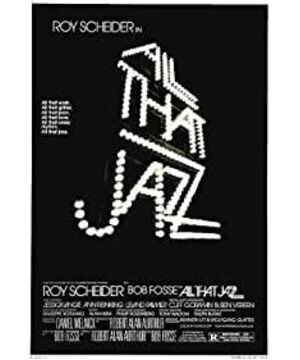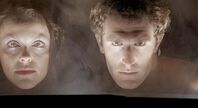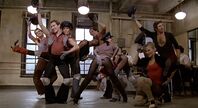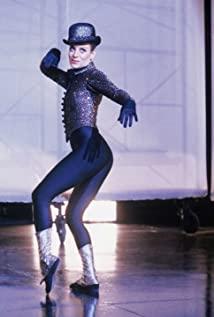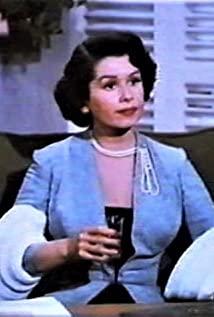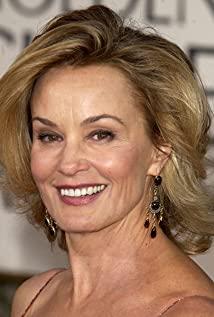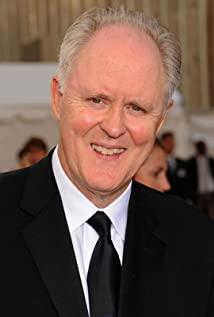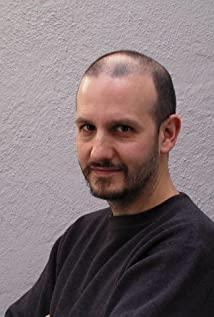Tratner once made a remark on James Joyce's 'A Portrait of the Artist as A Young Man' that:
In every novel, there is a hidden figure of the artist; it could also be a writer, but usually more subtle than that – like a painter, as we saw with Lily Briscoe in Woolf's 'To The Lighthouse'. It could be someone to whom the author relates the most, or it could be an opportunity to make fun of the so-called figure of the 'artist' and their shortcomings.
Obviously paraphased, possibly a subjectively induced faulty memory too: I could never remember all the crap that Tratner passed on to us in the classroom, let alone verbatim. But it works as a fitting anecdote for me to introduce that ever since then, I' ve been on the look-out for the portrait of the artist himself (yes most usually a he) in his work, and all the self-reflexive / mirror image / mise-en-abyme whirls that come with it.
Hate to make this comparison but it reminds me of another auteur's-midlife-crisis-turned-contemplation-of-death film I watched recently – Synecdoche, New York. But I guess that's the difference between theatre and musical: the former lacks the pizazz , the razzle dazzle, and all that jazz. Synecdoche's narrative largely depends on the proximity and likeness between life and art, while maintaining the latter's artificiality (the building sets, the actors, the stage instructions) as a source of humour and the structural & thematic reflexivity throughout the film. All That Jazz however, takes parody and sarcastic reflexivity to another level: the transposition of (Joe's) life into songs, the transposition of Bob Fosse's life into Joe's life into songs,the act itself of transposing life into songs which is so essential to the musical genre (the Hospital Hallucination numbers, and hey, this whole film). If Synecdoche blurs the lines between seriousness and dark, sarcastic, self-pitying humour, All That Jazz almost completely refuses to acknowledge 'seriousness', as if *cue* IN DENIAL: the most telling lines about death are spoken through a stand-up comedian, in a film-within-a-film, which is then ridiculed in —which is then ridiculed in —which is then ridiculed in —
— this brief moment of truth, and a perhaps rare moment of self-examination for the artist (Bob Fosse) himself, which, of course, is filtered through the usually displeasing figure of the critic and literally talked over, barely distinguishable:
Leaning toward the frenetic, Gideon falls into his characteristic weakness of trying too hard to please, to entertain. Slickness obscures reality. The old razzle-dazzle sometimes obliterates drama. Had Gideon trusted the truth of his story, the trials and tribulations of an alcoholic night-club comedy, he might have had a film to equal the best. ... Frantic cutting, and ear-splitting soundtrack, chopping off the ends of scenes before the drama has played out, left this reviewer with bewilderment and a four- aspirin headache.
I wonder if Bob Fosse is at all conscious about his directing skills. This is something that I hadn't noticed when I watched Cabaret, but some of the above mentioned definitely echoes my experience watching this film (not by way of suggestion): frantic cutting and chopping before the drama has played out. There were many moments in the film when I felt he didn't have to pace it so fast, and that despite the sometimes creative and statement uses of silence, he could've let it breathe a little between the numbers, not so intense and packed together. But under the context of this review – I wonder if it might be intentional?
Although the underlying tension between Broadway musical and Hollywood musical isn't particularly dramatized here – given that he is both a choreographer and a director (and there is potentially a huge conversation somewhere about the cinematic enactment of music theatre: choreographing, shooting, audience engagement ), I have to say the cinematography on some of the dance numbers are absolutely exquisite.
An artist who is neither apologetic nor self-justifying in his portrayal of himself as the talented, fast-living womanizer.
Another comparison that can't help but be drawn is that with Fellini's 8 1/2 which supposedly inspired Fosse. You can sort of see it in the abundance of women and the dream sequences: the Goddess of Death, the mother, the hookers, the wife, the daughter, the girlfriend, the protégé, the occasional fling, etc. But could Fellini have made this film? No. He's too serious, and he doesn't know how to entertain. All That Jazz is in its soul utterly American, and like so many other Hollywood classics that is an image of itself (Singin' in the Rain, Sunset Blvd), captures the essence of the showbiz in all it sincere frivolities:
View more about All That Jazz reviews


